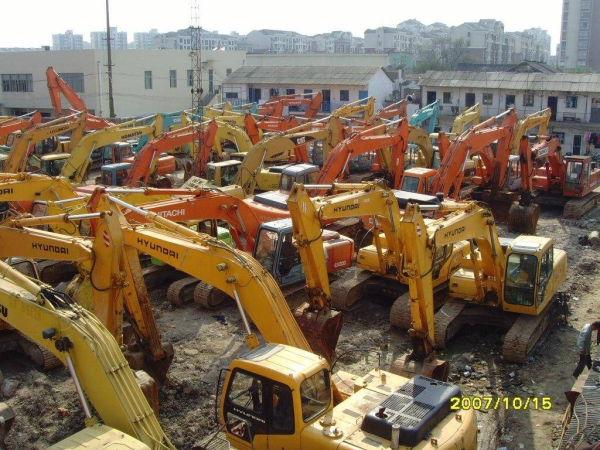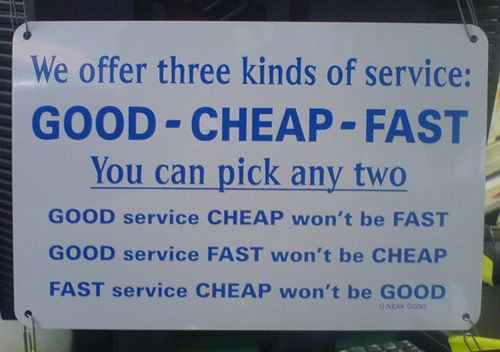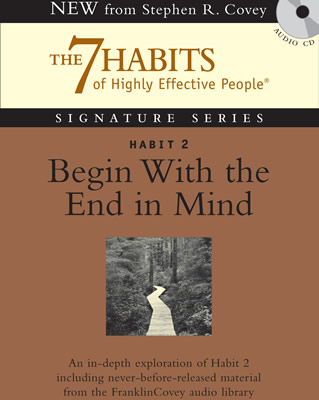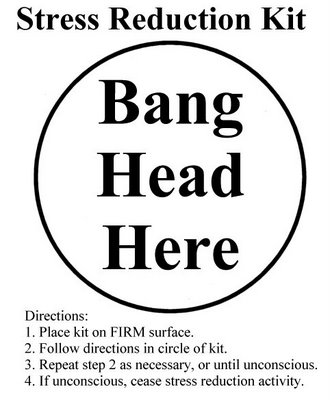Posted by Dan Phelan on Tue, May 03, 2011 @ 10:12 AM
 This is part one of a THIRTEEN part series called “Back to the Basics”. The 13th post will be on Friday the 13th, so we figured what the hell. Our goal is to take a step back from the complexities of contracts and endorsements and provide a simple refresher on the lines of insurance coverage that most commercial contractors need. This series will outline what each line covers, why you need/should carry it, some claim scenarios that you could face, and some suggestions on how to prevent losses in each coverage part.
This is part one of a THIRTEEN part series called “Back to the Basics”. The 13th post will be on Friday the 13th, so we figured what the hell. Our goal is to take a step back from the complexities of contracts and endorsements and provide a simple refresher on the lines of insurance coverage that most commercial contractors need. This series will outline what each line covers, why you need/should carry it, some claim scenarios that you could face, and some suggestions on how to prevent losses in each coverage part.
If you have any follow-up questions, please utilize our Ask A Risk Advisor tool.
What is it?
We’re going to start with the line of coverage that every legitimate, by the book contractor carries; Commercial General Liability. Commercial general liability (referred to as CGL). The CGL at its most basic level is in place to protect the insured (you) from lawsuits that stem from bodily injury or property damage to a third party. Another way to think about it CGL is that it’s lawsuit insurance. If someone claims that they were injured by your company and sues you, the CGL will pay defense costs, awards, and settlements to the injured party if they were injured by your premises, operations, completed operations, or 1099s that were working on your behalf. (some of this varies by state, so please contact your agent or broker for specific questions). Normally, the CGL also has a contractual liability insurance feature to it which means that it will also offer protection to other contractors when they are held harmless and/or indemnified in a written contract.
Why should my construction company carry it?
If you want to start bidding commercial jobs, you will need it.
If you’re signing contracts, you are mandated to carry this 99.9% of the time.
If you are a residential contractor that wants to go legit, you will need it.
Types of Claims:
Slip/Fall. A client, vendor, salesperson, etc., comes to your office to drop something off, pick something up, etc., and on their way out, they slip on some ice because you didn’t shovel the walkway. They sue you for negligence because you didn’t clean the walkway. Your CGL pays for defense and settlement.
Completed Operations. In a building you helped build, your portion of the work was not completed correctly and the building collapsed. Since the faulty work was your fault, your CGL will be paying the bill. More info on Completed ops here
Loss Control Suggestions:
Maintain public areas.
Shovel snow and ice, fill potholes, warn of wet floors, rope off holes.
Check back tomorrow for another exciting blog post about Commercial Business Automobile Coverage!
About the Author:
Dan Phelan runs the marketing department at Construction Risk Advisors when he's not out helping his clients with risk management and insurance issues. If you want to connect on twitter, he's at @fixyourrisk and here on Facebook

Posted by Robert Phelan on Wed, Oct 20, 2010 @ 02:13 PM
Measuring the “Cost of Ownership” of Construction Insurance
We have written posts about the Total Cost of Risk and I suspect many construction company owners don’t relate to that concept. So I’m going to try another angle.
Many of you make large capital equipment purchases throughout the year. Let’s use an Excavator as an example. In addition to the standard comparison items like:
Track length
Reach
Dig Depth
Lift Capacity
Operating Weight
You are also going to look at Cost of Ownership. This would include items such as:
Can I depend on this Mfr/Model to be free of expensive maintenance?
What are the annual operating expenses?
How strong is the warranty?
How about trade in value? Does this make/model hold it’s value?
What kind of downtime will I have for standard maintenance?
In other words, what does it cost to own this piece of contracting equipment?
Connecticut contractors need to look at insurance purchasing the same way. Just as in equipment, the premium does not reflect the total cost of ownership. Two pieces of equipment that have the same price tag could have very different costs of ownership.
What are the kinds of comparison points that you would look at when evaluating insurance?
First would be considerations of your Risk Advisor or Insurance Agent. You would compare:
Experience of the service team:
Breadth of capabilities (Safety consulting, Claim consulting, HR assistance, Bid spec review, Contract terms evaluation, etc.)
Willingness to receive performance-based compensation
Workers Comp Experience Mod Rate improvement plan
Problem solving abilities
Second would be the insurance carriers:
Which ones specialize in contractors of your type?
What specialized services do they have for contractors?
What is the average tenure of their claim reps?
Do they have a Preferred Provider Network that works for you?
Are their loss control reps construction specialists?
Are their in-house lawyers construction specialists?
These services are about two things: Preventing claims and minimizing the expenses of claims you have (The TRUE Cost of Risk). If one construction workers comp claim is mismanaged, it could not only cost you lots of time and money. It could cost you work. Every Connecticut contractor insurance buyer knows that an EMR of 1.0 or greater puts them in the “danger zone” of not only an increase in construction workers compensation premiums, but also in their ability to bid jobs for certain owners and general contractors.
What would the cost be to your construction company if you couldn’t bid or didn’t get $2M worth of work in the next three years? Will the broker/carrier combination you have just chosen based on a low bid be the best ones to prevent this from happening? Think of that carefully and be sure to pay as much attention to insurance buying as you do to equipment buying.
Posted by Dan Phelan on Wed, Sep 29, 2010 @ 07:52 AM
 Insurance is expensive. Whether Geico saves you 15% or you had a few losses last year and your premium was increased 15%, you're probably still thinking that insurance is too expensive. The perception of many commercial construction insurance buyers is that if they "shop around" their insurance, they will be able to find a cheaper rate. While this CAN be a way to achieve your goal of getting cheaper insurance, let's look at a few of the pitfalls of this mindset. For this example, let's say ABC contractor is a carpenter that has been working as a sole proprietor and up to this point has only carried Commerical General Liability. However, he just got the opportunity to bid on a $50,000 job and the upstream party(owner or General Contractor) is requiring that he carry workers compensation. This insurance coverage hasn't been necessary for any jobs he has done in the past, and whenever he needed assistance on a job, he just called up one of his buddies and paid them under the table for their services. Yes, we in the insurance industry are well aware of this practice, and have a general understanding of what type of labor is necessary to complete certain aspects of a construction project. Anyways, so now you know you are going to have to carry workers compensation, as well as legally pay your helper/employee. Because you're inundated by PERSONAL insurance marketing whenever you turn on your TV, your gut reaction is to pick up the phone or hop on the internet to get as many quotes as you can without ever considering whether the insurance agents and brokers you are calling know a thing about Connecticut construction insurance. So now you've got a few live insurance people in the phone and are getting multiple quotes from different agents for different lines of coverage.
Insurance is expensive. Whether Geico saves you 15% or you had a few losses last year and your premium was increased 15%, you're probably still thinking that insurance is too expensive. The perception of many commercial construction insurance buyers is that if they "shop around" their insurance, they will be able to find a cheaper rate. While this CAN be a way to achieve your goal of getting cheaper insurance, let's look at a few of the pitfalls of this mindset. For this example, let's say ABC contractor is a carpenter that has been working as a sole proprietor and up to this point has only carried Commerical General Liability. However, he just got the opportunity to bid on a $50,000 job and the upstream party(owner or General Contractor) is requiring that he carry workers compensation. This insurance coverage hasn't been necessary for any jobs he has done in the past, and whenever he needed assistance on a job, he just called up one of his buddies and paid them under the table for their services. Yes, we in the insurance industry are well aware of this practice, and have a general understanding of what type of labor is necessary to complete certain aspects of a construction project. Anyways, so now you know you are going to have to carry workers compensation, as well as legally pay your helper/employee. Because you're inundated by PERSONAL insurance marketing whenever you turn on your TV, your gut reaction is to pick up the phone or hop on the internet to get as many quotes as you can without ever considering whether the insurance agents and brokers you are calling know a thing about Connecticut construction insurance. So now you've got a few live insurance people in the phone and are getting multiple quotes from different agents for different lines of coverage.
What happens when you need a certificate of insurance?
1. You call BOTH of your agents (because they were able to get cheap quotes, but not for both GL and Comp)
2. Both of these agents either fax, email, or snail mail the certificate to the certificate holder (now the receiving party has to coordinate the filing of multiple certs, arriving at different times. AKA a pain in the ass for the owner/GC you're working for and is PAYING you)
3. Did you read your contract? Does it require you to maintain your General Liability coverage for several years after the completion of the project. (Hint: most commercial construction contracts have this requirement) Now, for 3-7 years following the completion of this job you will be required to send certs to the certificate holder for the next few years at the time your insurance renews. Multiple agents, sending multiple certificates for multiple years is a poor risk management strategy. If you don't send these certificates, and have a complete operations claim, you will be in breach on contract and whichever insurance carrier issued your policy, is no longer required to pay your claim.
This is a reality. This kind of claim happens often. Will it be worth paying 20 grand out of YOUR pocket to save $80 dollars on your insurance policy?
If that 80$ is more important that keeping your doors open, please use the yellow pages to find coverage. If you want a policy that covers your construction company correctly and makes it easy for General Contractors and Owners to work with you, Call Us.
Posted by Robert Phelan on Mon, Aug 23, 2010 @ 08:22 AM
If you’ve been buying commercial construction insurance for more than ten years you know that ours(construction insurance industry) is a cyclical business and we have sudden and unpredictable price corrections. For approximately eight out of every ten years, companies who sell business insurance are in a price war. When they all start to bleed badly, they raise prices and you the customer get whacked. Just when you thought life was good i.e. really cheap construction insurance quotes, you’re blindsided with a 50% rate increase. No fun.
I can’t wave a magic wand and eliminate market cycles. However, this focus on TCOR I have been espousing will minimize the upswing in rates for you.
Why?
 By focusing on Total Cost of Risk, you are going to be preventing and mitigating losses. That’s where all the money is. Lost productivity, burdensome claim administration, and large business insurance rate increases all connect back to losses/claims. As I like to say, “Whoever has the lowest losses, wins!”
By focusing on Total Cost of Risk, you are going to be preventing and mitigating losses. That’s where all the money is. Lost productivity, burdensome claim administration, and large business insurance rate increases all connect back to losses/claims. As I like to say, “Whoever has the lowest losses, wins!”
Pretend you’re an underwriter for a moment. Your boss has charged you with the responsibility of managing a book of business and pricing the business insurance policies so the book will be profitable. If you’re smart, what are you going to look for? The construction companies with the lowest losses. Low losses for you equals higher profits for you and your insurance company.
What happens when the market makes a correction and prices go up for everybody? You can’t avoid the correction entirely but you can ride low on the curve. What I mean is that when insurance companies are losing a lot of money and have to start charging more, there is a flight to quality. Getting profitability back has two pieces: one is raising prices and the other is only keeping the construction companies with the lowest loss levels. You want to be one of them.
Those construction companies riding high on the curve get the biggest rate increase and in a worst case may not even be able to buy insurance. The insurance company’s goal is to eliminate all business that is damaging their profitability. Conversely, they want to hang onto their most profitable accounts because they will contribute the most to improving profitability. If you are in this latter category, they don’t want to drive you away but want to attract you. They will do that by offering you the best pricing they can.
Rule #3 – implement every measure possible to reduce claims to their lowest level.
In my next post, I’ll explain more why it’s all about the losses and their prevention.
Posted by Robert Phelan on Fri, Aug 20, 2010 @ 01:56 PM
So now that you know that Total Cost of Risk (TCOR) is the primary criteria to measure, how do you go about it?
If you are going to “begin with the end in mind”, that means you are going to have a plan. I can see your eyes rolling back in your head as you read this. You’re already overwhelmed with work and now some guy is telling you that you have to have a plan to manage your business insurance.
 Remember in Part 1 where I told you to find a Risk Advisor or Agent/Broker who can talk to you about TCOR? Well, If their orientation toward risk management has a TCOR focus, creating and implementing a risk reducing plan will be a core strategy they employ. It’s not about more work for you. It’s simply about finding the right adviser trained and skilled in the concepts of risk management vs. selling insurance policies.
Remember in Part 1 where I told you to find a Risk Advisor or Agent/Broker who can talk to you about TCOR? Well, If their orientation toward risk management has a TCOR focus, creating and implementing a risk reducing plan will be a core strategy they employ. It’s not about more work for you. It’s simply about finding the right adviser trained and skilled in the concepts of risk management vs. selling insurance policies.
If you need heart surgery, you don’t need to know how to perform it. You just have to find someone who does. Same with risk management. This isn’t a new skill you have to develop. You just have to find an advisor who will diagnose, design and implement a risk reducing plan. The reward for you will be much larger long term savings than simply focusing on cheaper insurance.
Rule #2 is to create a long term plan (or have one created for you) to reduce TCOR. Some of the savings will come instantly and some will take longer but this I will guarantee. If you focus on TCOR and have a smart advisor, you will always pay the lowest possible amount for business insurance. I’ll explain in my next post.
Part#1(If you missed it)
Look for Part #3 on Monday 8/23
Posted by Robert Phelan on Thu, Aug 19, 2010 @ 09:01 AM
A famous consultant, Steven Covey, wrote in his first book about a concept called, “Begin with the End in Mind”. In other words, as you begin any endeavor, first you have to consider the end game. What is your ultimate objective?
With business insurance, as in most business decisions, the owner of a construction company is either trying to increase profits (sales) or cut costs. That’s what we CEO’s focus most of our time on. We also know it’s not all about bottom line price on the cost saving side of the ledger. There are always other considerations.
With business insurance, those considerations usually come down to two items (not necessarily in this order):
- Price
- Relationship

When you consider that your business insurance is what safeguards you from disaster or even bankruptcy, should your end game be staying with my “friend” or finding the cheapest price?
I don’t think so.
Let me introduce a new concept and offer an alternative way to measure success. The concept is TCOR which stands for “Total Cost of Risk” or “True Cost of Risk”. All large companies who have professional risk managers base their decisions on TCOR. You would too if you had professional risk management training.
In the simplest terms, Cost of Risk is a measure of not only insurance but all the other factors related to risk as well. Some examples are:
- Insurance Deductibles
- Loss Prevention expenses
- Time your staff spends managing claims
- Uncovered claims
- Lost profits on construction projects you can’t bid because your Experience Mod (EMR) is too high
- Lost productivity due to worker injuries
This is lesson one so I’m going to introduce Rule #1. If you are buying commercial construction insurance from someone who can’t discuss your overall costs in the context of TCOR, fire them. The experts say insurance isn’t even 50% of the Total Cost of Risk. Google “total cost of risk + the state you company is based in(CT, VT, CA, etc)” and find an advisor who can explain the big picture. Then you’ll really start saving money.
If you're wondering whether your agent is addressing TCOR correctly, fill out our proprietary questionnaire to find out whether you have a Risk Advisor or an Insurance Agent
Posted by Robert Phelan on Wed, Aug 18, 2010 @ 01:40 PM
 I am going to say some harsh things in my post today. Maybe it’s because I was listening to political talk radio at lunch today. Maybe it’s because it’s long overdue. Regardless, what I’m about to say could save your business so please pay close attention.
I am going to say some harsh things in my post today. Maybe it’s because I was listening to political talk radio at lunch today. Maybe it’s because it’s long overdue. Regardless, what I’m about to say could save your business so please pay close attention.
Business Insurance is not a commodity! I’ll say it again louder. BUSINESS INSURANCE IS NOT A COMMODITY!!!
If you believe me, then why do most Connecticut construction company owners put their business insurance out to bid and base their buying decision solely on price?
When I make this next statement, remember that I’m here to save your business and not make friends. Buying business insurance based solely on price is one of the more foolish purchasing strategies a construction company owner or CFO can make.
Why?
Because when disaster strikes, your business insurance is all that stands between you and bankruptcy. Disaster comes in many different forms. Ask the owners of Hartford Distributors or the owners of Kleen Energy. Whether it’s workplace violence, multi-million dollar lawsuits or a prolonged business shutdown, when disaster strikes, you don’t not want to rely on the cheapest insurance for your survival.
Think of what you’ve built. Think of the hours of work and the sleepless nights. Think of all the people who depend on your company for their livelihood. This income-producing asset you call a business is valuable. Do you entrust any of your other valuables to the cheapest protection you can find? Is that how you chose your car which is protecting your family or the alarm system at your house or the sprinkler systems in your building?
It absolutely drives me crazy when the owner of a well-established, well run construction company will give more analysis to buying a piece of equipment than buying business insurance. But you know what? I’m going to let you off the hook. It’s not your fault. It’s the insurance industry’s fault for promoting price as the most important decision criteria for their product.
So if price isn’t the main criteria, what is? Stay tuned for our next three posts on how Construction company insurance buyers can make the smartest decisions BEFORE their next renewal.